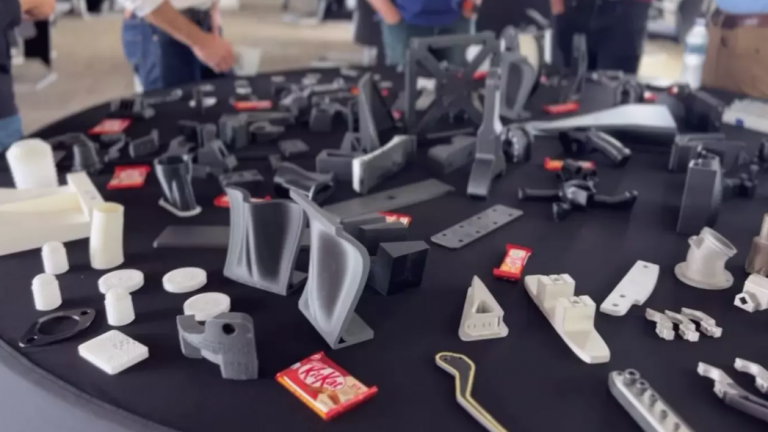Nestlé has made progress in the implementation and optimisation of its 3D printing technologies across its manufacturing sites in the UK.
Over the last year, Nestlé has established a standardised process for 3D printing technology – an industrial method that deposits materials layer by layer to create geometric 3D objects while minimising waste. Nestlé’s team of three experts have used the machinery to print replacement components and spare parts for its factories here in the UK. The components are made in York and then transported in-house to sites, including Tutbury, Halifax and York factories.
This initiative has led to substantial cost savings, with potential reductions compared to traditional manufacturing methods. By leveraging its central 3D Printing workshop in York, Nestlé sites across the UK have reduced their reliance on third-party suppliers, which has minimised transportation needs and reduced carbon emissions.
In addition, the use of 3D printing has led to a reduction in emissions, playing a part in meeting Nestlé’s overall sustainability goals, through the manufacturing of parts in-house, waste reduction and printing parts to meet required specifications. The reduction in transportation needs also contributes to a greener supply chain, demonstrating the organisation’s dedication to environmental responsibility.
Nestlé has set a target to produce over five per cent of its site inventory using 3D printing technology, a goal that reflects its commitment to innovation.
Last month, Nestlé hosted a workshop in collaboration with Markforged, a leading company in industrial 3D printing technology, at its York campus. The event brought together industry leaders, engineers, and digital transformation teams to discuss the scalable implementation of 3D printing in high-volume production environments. Attendees of the event engaged in hands-on demonstrations and discussions about best practices in manufacturing.
Simon Billington, Head of Technical & Production at Nestlé UK and Ireland, said: “As we continue to embrace 3D printing technology, we are not only enhancing our operational efficiency but also paving the way for sustainable manufacturing practices that will define the future of our industry.”
Alan Yu, Senior Application Engineer at Markforged, said: “Nestlé has advanced its use of additive manufacturing in production line maintenance by creating a clear, standardized process to evaluate and scale its impact. It’s been great to support their team along the way and see how they laid the foundation for Nestlé’s broader adoption.”
Looking ahead, Nestlé is dedicated to further advancing its 3D printing capabilities, with plans to expand this technology to include food-safe components in the future. The roadmap for the next two – five years aims to enhance autonomy in 3D printing, ensuring that each site can independently meet demand while maintaining high standards of quality and efficiency.
For more news like this, click here.

